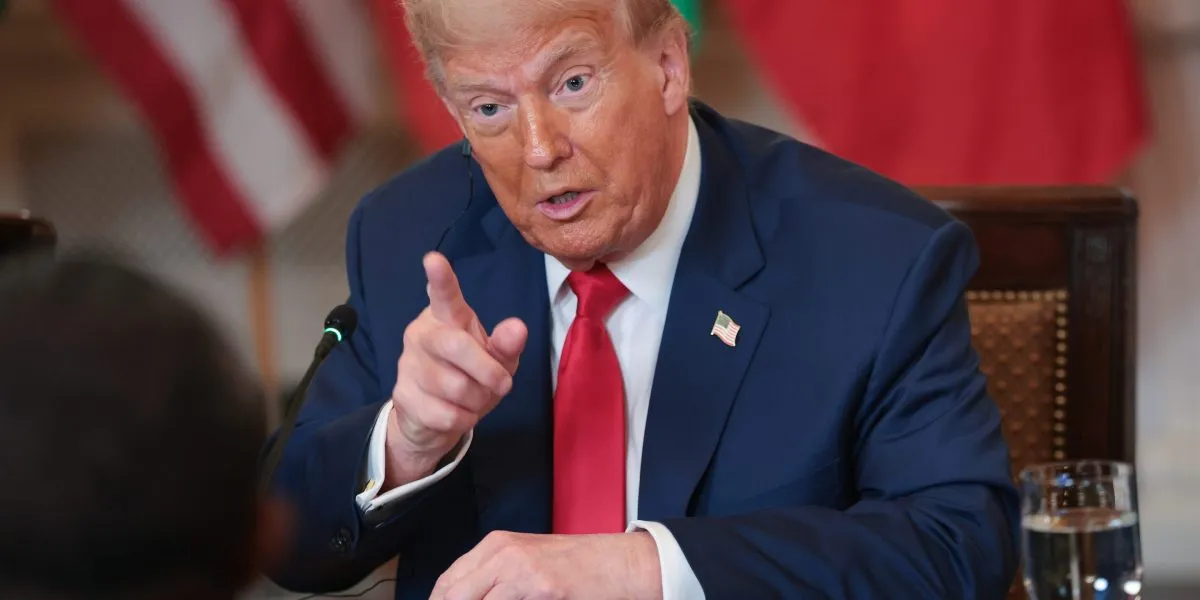
On Wednesday, former President Donald Trump announced a significant initiative aimed at urging Coca-Cola to transition from corn syrup to cane sugar for its products made in the United States. This move marks a substantial shift from the widespread use of inexpensive high-fructose corn syrup, which is prevalent in many of the company's popular beverages. Trump took to social media to express his enthusiasm, stating, “I have been speaking to @CocaCola about using REAL Cane Sugar in Coke in the United States, and they have agreed to do so.” He further expressed gratitude to Coca-Cola’s management, claiming this change would be a positive decision for the company and its consumers.
In response to Trump's statements, Coca-Cola indicated that it would provide “more details on new innovative offerings” soon. However, the company did not confirm any plans to switch to cane sugar for its U.S. products. On Thursday, Coca-Cola defended its ongoing use of high-fructose corn syrup, noting that it contains “about the same number of calories per serving as table sugar and is metabolized in a similar way by your body.” Despite this clarification, Coca-Cola declined to elaborate further on the matter, leaving many questions unanswered.
The potential shift towards cane sugar has raised concerns among leaders in the corn industry, particularly the Corn Refiners Association. This trade group fears that replacing high-fructose corn syrup with cane sugar could disadvantage U.S. corn farmers. John Bode, CEO of the Corn Refiners Association, criticized Trump’s proposal, stating, “Replacing high-fructose corn syrup with cane sugar doesn’t make sense. President Trump stands for American manufacturing jobs, American farmers, and reducing the trade deficit.” He argued that such a change could lead to job losses in American food manufacturing and diminish farm incomes.
Experts suggest that a shift in demand from corn syrup to cane sugar could significantly impact sugar-producing states like Louisiana and Florida, as well as import sources from Central and South America, where sugar is subject to heavy tariffs. Brandon McFadden, a professor of food policy economics at the University of Arkansas, explained that corn farmers, particularly in Iowa and Illinois, might need to seek alternative markets for their crops. While corn exports have reached record highs this year, ongoing trade tensions with China have stymied exports to that crucial market, which has historically benefited U.S. corn producers.
Despite the concerns raised, some industry experts argue that the immediate effects of Coca-Cola’s potential switch to cane sugar may be overstated. According to the U.S. Department of Agriculture’s Economic Research Center, corn syrup production constitutes only a small fraction of the total corn market, accounting for approximately 410 million bushels out of 15.5 billion bushels produced annually. Scott Irwin, the Laurence J. Norton Chair of Agricultural Marketing at the University of Illinois Urbana-Champaign, noted that Coca-Cola's removal of high-fructose corn syrup would likely have minimal impact on the broader corn market.
However, Trump’s push for cane sugar may symbolize a larger movement led by Robert F. Kennedy Jr., the Secretary of Health and Human Safety, who advocates for healthier food choices under the “Make America Healthy Again” (MAHA) campaign. This initiative targets ultraprocessed foods, including those containing corn syrup, and promotes alternatives like cane sugar. Irwin highlighted the growing consumer backlash against food additives and health issues like diabetes and obesity, which the MAHA movement seeks to address.
Despite the momentum behind the MAHA movement, the entrenched interests of the U.S. agriculture lobby may pose significant challenges to any substantial changes in sugar policy. Since the 1970s, U.S. sugar producers have enjoyed protections that have kept sugar prices artificially high, leading food processors to rely on corn syrup as a cheaper alternative. The powerful corn lobby continues to oppose changes to sugar import policies, which favors corn syrup over cane sugar.
Irwin suggests that a more effective approach to reducing the prevalence of high-fructose corn syrup would involve reforming U.S. sugar policy to create a level playing field. However, given the strength of the sugar lobby and the Trump administration's support for American farmers, significant policy shifts may prove difficult to achieve. “It’s just going to be trying to walk that tightrope throughout this administration,” Irwin concluded.